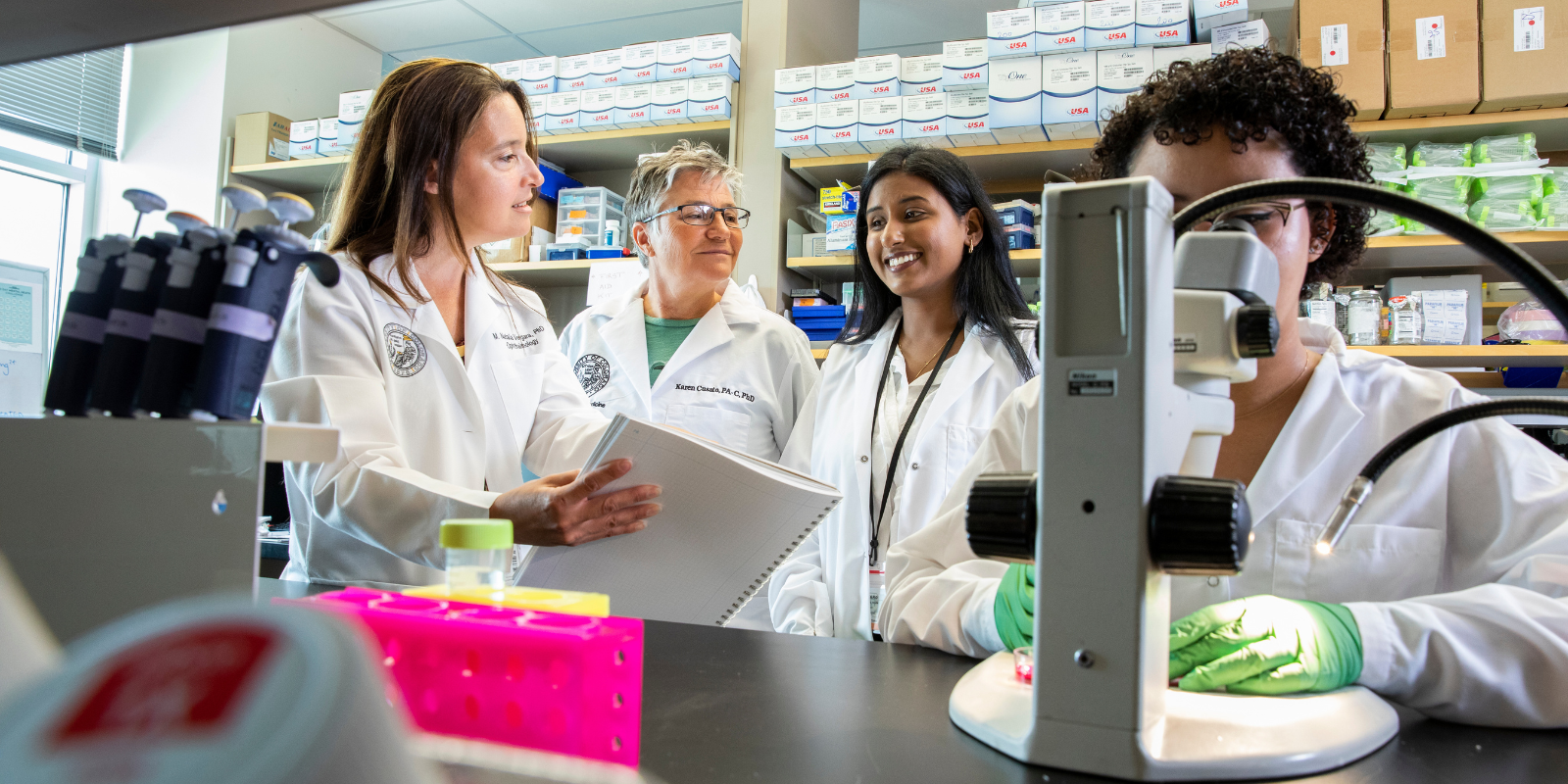During a career development course over a decade ago, Prem Subramanian, MD, PhD, Clifford R. and Janice N. Merrill Endowed Chair in Ophthalmology and professor at the Sue Anschutz-Rodgers Eye Center, picked up a tip that he’s used ever since: sit and listen to the patient for two minutes without saying anything.
“Two minutes in that circumstance seems really, really long, and patients sometimes run out of things to say. But if you do that, the patient often feels like you spent an hour with them,” he says.
During these two minutes, Subramanian can learn a lot about the patient, their concerns, and their mental well-being, which is often deeply intertwined with the ocular condition they are facing.
Some patients face severe depression or anxiety from losing what they consider to be their most valuable sense, while others are devastated by changing facial appearance due to a condition like thyroid eye disease (TED).
“It’s abundantly clear that ophthalmologists have a duty to acknowledge and talk about mental health, because it deeply affects the patient and their quality of life,” Subramanian says.
The mental-ocular health connection
Ocular conditions – even those that are often classified as mild, like dry eye — can be much more than just irritating. They can have significant effects on self-confidence and can create or exacerbate mental health disorders.
In TED, Subramanian says young women, the population most prone to the disease, often feel a lot of pressure to maintain a specific appearance.
“If you look different than what society says you’re supposed to look like, that has a significant impact on your mental health,” he says. “I’ve seen patients who don’t want to go outside, associate with friends, or do anything where they’ll be seen.”
On the flip side, mental illness can sometimes lead to eye trauma, says Sophie Liao, MD, associate professor of ophthalmology and Robert H. Bell Endowed Chair in Ophthalmology.
“In extreme cases, patients may end up in our clinic with self-induced trauma to their eyes because of an existing mental health condition, like paranoid schizophrenia,” says Liao, who specializes in oculofacial plastic and reconstructive surgery. In these cases, a person may engage in a practice called autoenucleation, where they don’t see the eye as part of themselves and damage it as a result.
“In these instances, an ophthalmologist has to think bigger than just ocular treatment,” Liao says. “You are assessing what can be salvaged and what next steps are necessary for medical care, but if you only treat the trauma and send them home, that doesn’t address the social and mental health struggles that brought them into your care in the first place.”
Luckily, Liao continues, integrated care and more mental health resources have been implemented across UCHealth clinics, so whether a patient is suffering from mental illness because of an eye condition or vice versa, ophthalmologists can better connect them with the appropriate experts and necessary treatment.
Prepping trainees to reduce stress
Treating the intersection of ocular and mental health can also take its toll on ophthalmologists.
“Sometimes you encounter a scenario that isn’t a part of traditional training,” Liao says. “We can teach our trainees anatomy and how to get through a surgery fairly easily, but it’s sometimes those other factors that can be challenging to manage.”
As a result, the Department of Ophthalmology at the University of Colorado School of Medicine has elevated training on stress management through a resident wellness program. With various assignments, instructors aim to boost confidence, built connections, and emphasize the importance of mental health.
It starts with a conversation
Even in a busy clinic where time may be limited, Subramanian and Liao emphasize the significance of communication between patients and their doctors about mental health concerns.
“I’ve gotten so much additional information out of conversations with patients, and it doesn’t always help me treat their eyes, but it tells me something about them and it makes a human connection,” Liao says. “These types of interactions are so important when it comes to the provider-patient relationship and building trust.”
For patients, talking to an ophthalmologist about concerns that stem from an ocular issue can be beneficial for overall health, the two ophthalmologists agree.
“I would encourage patients to mention these feelings and say, ‘it's not just about my vision, it's about how I look’ or ‘it's about how I feel about myself because my vision is not normal,’” Subramanian says. “Patients should share these things with us because we’re doctors first and ophthalmologists second. We want to know what our patients are thinking and feeling.”





